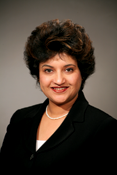DECEMBER 04, 2008
History is the foundation of our society! But wait…do our kids know that?
By Paula Gangopadhyay, Director of Education
It is a well-known fact that our American education system of late, views reading and math as subjects that are fundamentally necessary for a child’s educational foundation and future success in the world. Public policy, resource allocation, teacher professional development, school performance and accountability almost fully concentrate on these two areas. True, such overt focus on reading and math is essential, but inadvertently other subjects critical for a child’s holistic growth are slowly being put on the back burner and deemed unrelated to a child’s success. The result? More and more kids are coming out of our school systems with a narrow skill-set with little room for creativity and problem-solving. Youth today are unable to make relevant connections to the past, are unable to relate to what is happening in the present and can’t quite figure out what is important for tomorrow. It is this fast depleting appreciation of history that is proving to be detrimental to America’s innovative spirit and the global economy.
As formal and informal educators, we have a critical responsibility to generate new and appealing ways of engaging our young minds to appreciate history and apply the lessons learned from the past in everyday life. We need to break the myth that history is boring and unimportant. Museums, history teachers, parents, business leaders and policy makers have to come together to raise awareness that history is essential for our society and for our posterity and should not be considered secondary in education. Let us be creative and make history a core interdisciplinary contextual element of all subjects, whether it is science, math, literature or economics. Let us mobilize our youth to recognize that they are the makers of what will be considered history tomorrow. Let us redefine history from its old definition of a stagnant force, and make it a practical and dynamic tool that can help shape our future.
If you are inspiring young minds to appreciate and apply the lessons of history, we want to hear from you. Share your best practices with us!
Paula Gangopadhyay
Director of Education
The Henry Ford
